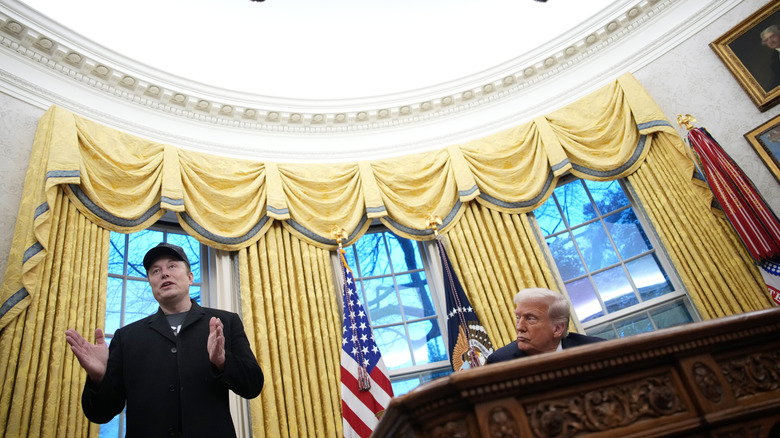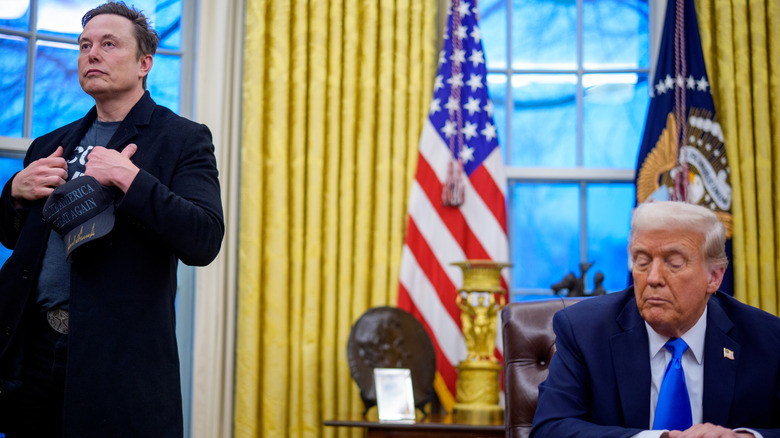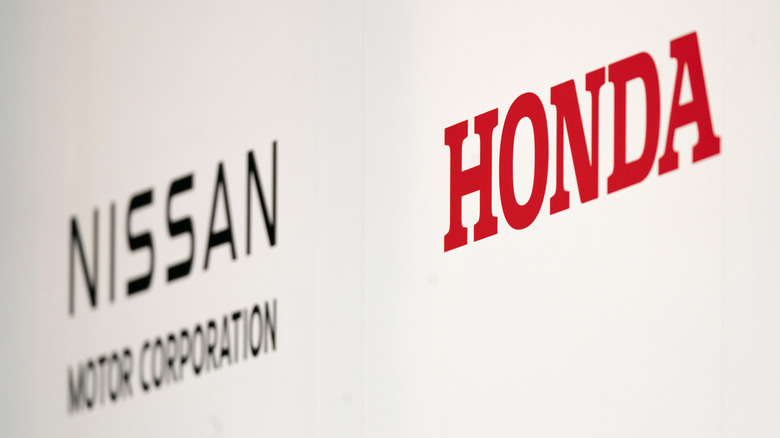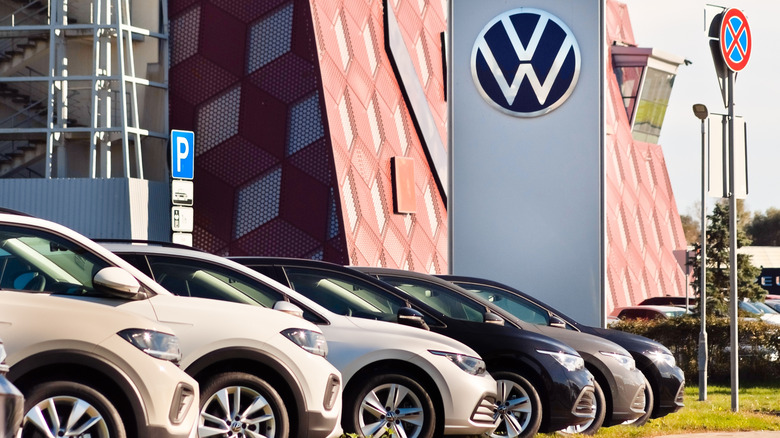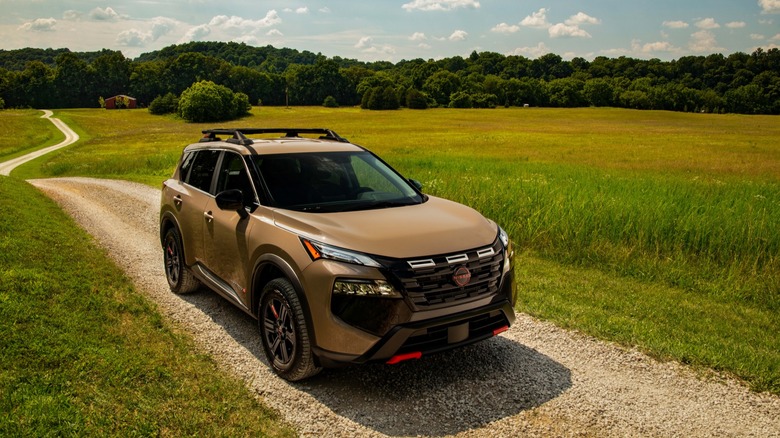Elon Musk Has No Authority Here
Good morning! It's Tuesday, February 18, 2025, and this is The Morning Shift, your daily roundup of the top automotive headlines from around the world, in one place. This is where you'll find the most important stories that are shaping the way Americans drive and get around.
In this morning's roundup, find out just how little power Tesla boss Elon Musk actually has in his new government role that president Donald Trump invented for him. Plus, after merger talks with Nissan broke down, Japanese automaker Honda says it would happily head back to the negotiating table with Nissan if the company fired its CEO, and Germany's Volkswagen Group admits that it isn't quite ready to go all-in on electric power.
1st Gear: White House: Elon Musk 'has no actual authority'
Before president Donald Trump even took office, we braced for the influence Tesla boss Elon Musk might have on the new government. The billionaire donated a small fortune to the Trump campaign, and the "Home Alone 2" actor pledged to invent Musk an entire government department to make it up to him. That department has since wrought havoc across the government: gutting staff, pausing funding and getting access to all kinds of sensitive data.
Despite having this weird choke hold on the government, it turns out that Musk doesn't actually have any authority and the White House has now confirmed where the billionaire sits in the ranking of America's most powerful men, reports the Independent. Musk reportedly has "no actual authority" in government, and isn't even an employee of the Department of Government Efficiency that he leads. In fact, Musk is nothing more than an advisor to the president, as the site explains:
The White House said in a court filing Mr Musk has no decision-making authority and can only advise the president and relay directives. It also emphasised that Mr Musk is not an employee of the US DOGE Service or its temporary organisation, nor is he the DOGE Service Administrator.
"Like other senior White House advisors, Mr Musk has no actual or formal authority to make government decisions himself," it said, according to Reuters.
In December last year, Mr Trump said: "I am pleased to announce that the Great Elon Musk, working in conjunction with American Patriot Vivek Ramaswamy, will lead the Department of Government Efficiency." Since then, and following Mr Ramaswamy's departure from DOGE, Mr Trump has consistently referred to Mr Musk as its leader.
However, according to Joshua Fischer, Director of the Office of Administration at the White House, Mr Musk is neither the administrator nor an employee of DOGE. Instead, Mr Musk holds the title of "non-career special government employee" and serves as a senior adviser to the president.
In his role, Musk can't make any formal decisions for the government to follow and instead is only there to offer advice. This hasn't stopped him hogging the spotlight and having an almighty sway on government policy since Trump took office last month.
The influence he has over Trump sparked concerns for lawmakers across America, with U.S. judge Tanya Chutkan challenging Musk's authority. The judge expressed worries about the "unpredictable and scattershot" methods used by Musk and his cronies, adds the Independent.
While the White House set out to confirm that it's not Musk running the show, it didn't say who actually is in charge of things at the Department of Government Efficiency. Maybe it's Trump, maybe it's Vivek Ramaswamy, who has been pretty quiet since the new administration took control of America.
2nd Gear: Honda would revive merger talks if Nissan boss quits
Honda was going to merge with fellow Japanese automaker Nissan, and then it wasn't after the latter walked away from talks. Now, the Civic maker says it would be open to future collaboration with Nissan provided one small condition is met: Nissan's boss gets the boot.
Nissan reportedly shut the door to any merger between Honda after it emerged that it wouldn't be on a level footing and Nissan could, in fact, become a subsidiary of Honda, which it wasn't happy about. The pair confirmed talks were off last week, but now Honda has said it would be open to renegotiating a merger that benefits both brands should Nissan CEO Makoto Uchida step down, reports Automotive News:
Uchida has been under pressure to turn around Nissan after years of faltering sales and management turmoil left the automaker a diminished force.
Merger talks with Honda unraveled in a little more than a month due to Nissan's pride and insufficient alarm about its predicament, as well as Honda's proposal to make its smaller peer a subsidiary, sources previously told Reuters.
The FT reported that Honda is willing to revive negotiations with a Nissan boss who can more effectively manage internal opposition. Honda CEO Toshihiro Mibe last week said his company had no plan to launch a hostile takeover bid for Nissan.
Instead of betting on collaboration with Honda to save Nissan's slowing sales, aging lineup and dropping consumer interest, Uchida has a dramatic cost-cutting plan up his sleeve. This includes cutting up to 9,000 jobs around the world and reducing manufacturing capacity by as much as 20 percent.
Nissan isn't the only automaker struggling right now, as German automaker Volkswagen is also weighing up plant closures, job cuts and other drastic steps to help transform its balance sheet.
3rd Gear: VW and Audi sticking with gas power
Job cuts aren't the only play the VW Group is considering to revive its fortunes, the automaker is also reportedly turning to some pretty old fashioned tech to try and sell more cars. That's right, VW is considering sticking with gas power in its cars for much longer instead of switching to all-electric power as it initially planned.
VW and Audi will now reportedly invest more money in facilities building gas-powered models, according to Motor1. The investment aims to prolong the lifecycle of gas-powered cars offered in markets like Europe, where VW is struggling with its pivot to battery power:
According to several insiders cited by German business newspaper Handelsblatt, VW and Audi intend to delay their EV goals in Europe. The Wolfsburg-based automaker had planned to go purely electric on the continent by 2033, but that's apparently not the case anymore. As for the luxury brand from Ingolstadt, the lofty goal was to abandon combustion engines globally by the same year.
Audi has already admitted it's staying "flexible," according to a statement by CEO Gernot Döllner. At VW, head of technical development Kai Grünitz does not exclude the possibility of keeping the Golf Mk8 on sale until the middle of the next decade. An all-electric Golf Mk9 is still coming by the decade's end, so VW isn't ruling out selling two generations concomitantly for several years.
Nothing has been confirmed either way by VW or Audi, but Motor1 adds that the two brands will decide on their electric future in March, meaning that there's not long to wait to find out if the MK8 will be the longest-serving Golf of all time.
VW and Audi aren't the only brands reassessing their commitment to electric power, with Porsche just last week revealing that it would cut 1,900 jobs as a result of slowing EV sales. Automakers across America have also slashed millions of cars from their electric delivery targets.
4th Gear: Nissan could slash Rogue production in America
Since taking office last month, Donald Trump has been adamant that more manufacturing needs to come to America, and has pledged higher tariffs on goods brought here from overseas to try and do this. Now, however, Nissan has suggested that it could move some manufacturing off these fair shores as a result of the higher cost of building things Stateside.
The Japanese automaker could reportedly increase the percentage of Rogue SUVs that it imports into the U.S., dropping domestic production by about 17 percent in the process, reports Automotive News. The move has been motivated by the relatively lower costs of building the cars in Japan and shipping them here:
Nissan is considering building up to half of its next-generation Rogue volume in lower-cost Japan to boost the key model's competitiveness, a person familiar with the matter told Automotive News.
Nissan told U.S. suppliers last year that it can build the Rogue in Japan for 20 percent less, aided by foreign exchange tailwinds. But potential U.S. tariffs on imports could upend the calculus.
The compact crossover is currently dual-sourced from Nissan plants in Smyrna, Tenn., and Kyushu, Japan, but volumes could tilt toward the Asian factory.
Nissan leadership in Yokohama, Japan, will finalize the matter in the second quarter, said the person, who asked not to be identified because the deliberations were private.
Production of the Rogue in the U.S. could start at around 120,000 units per year, marking a 17 percent reduction compared with the current output. These models would mostly be cheaper gas-powered options, with Nissan considering building more expensive hybrid and electric models in Japan.
On The Radio: Wolf Alice - 'Planet Hunter'
February 18 has been a pretty important day when you look back through the history books: it's the date on which Shani Davis became the first Black athlete to win an individual gold medal during the Winter Olympic Games, marks 66 years since Ray Charles recorded "What'd I Say," and it marks the anniversary of the discovery of Pluto.
The exo planet was first spotted in the night sky by astronomer Clyde W. Tombaugh at the Lowell Observatory in Flagstaff, Arizona, way back in 1930, reports History.com. It's gone through a tumultuous time since then, being classed as a planet, then not a planet, then a planet again before everyone finally agreed that it maybe wasn't a real planet after all. Don't worry Pluto, I still love you.
To celebrate the astronomers out there that are discovering new planets and stars almost everywhere they look in the night sky, here's a song by British indie band Wolf Alice that seems apt for the day.
